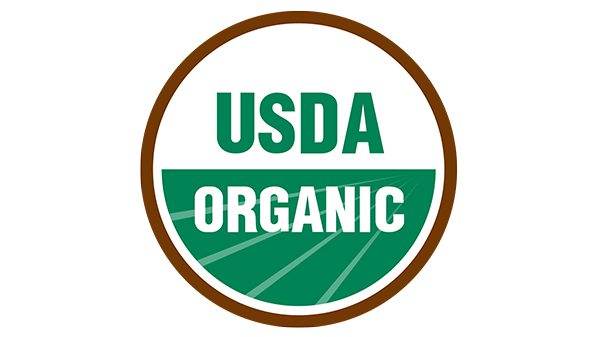
Stricter federal enforcement of organic standards starts this month.
On January 18, USDA announced its final rule for the Strengthening Organic Enforcement (SEP). It is going into effect starting on March 20.
The program’s chief goal: to prevent fraudulent labeling of food products as organic. The measure responds to increasing public skepticism about organic food claims.
“SOE requires many operations that were previously exempt from certification to get certified,” notes the website of California Certified Organic Farmers (CCOF).
Previously uncertified operations will be required to have certification by March 19, 2024.
“The new regulation represents the biggest change to organic regulations since the creation of USDA’s National Organic Program” (NOP) in 1990, stated the Organic Trade Association, the largest organization representing organic interests.
“The rule closes gaps in current organic regulations and builds consistent certification practices to prevent fraud and improve the transparency and traceability of organic products. Fraud in the organic system—wherever it occurs—harms the entire organic sector and shakes the trust of consumers in organic,” said an OTA press release.
“SOE protects organic integrity and bolsters farmer and consumer confidence in the USDA organic seal by supporting strong organic control systems, improving farm to market traceability, increasing import oversight authority, and providing robust enforcement of the organic regulations,” according to a USDA press release.
Some central features of the program:
• Requiring certification of more participants in the organic business, such as brokers and traders, at critical links in the supply chain.
• Requiring NOP certificates for all organic imports.
• More rigorous on-site inspections of certified organic operations.
• Requiring additional data and more frequent reporting of data on certified operations.
• Requiring organic identification on nonretail containers.
To see the full rule, visit the Federal Register.
Stricter federal enforcement of organic standards starts this month.
On January 18, USDA announced its final rule for the Strengthening Organic Enforcement (SEP). It is going into effect starting on March 20.
The program’s chief goal: to prevent fraudulent labeling of food products as organic. The measure responds to increasing public skepticism about organic food claims.
“SOE requires many operations that were previously exempt from certification to get certified,” notes the website of California Certified Organic Farmers (CCOF).
Previously uncertified operations will be required to have certification by March 19, 2024.
“The new regulation represents the biggest change to organic regulations since the creation of USDA’s National Organic Program” (NOP) in 1990, stated the Organic Trade Association, the largest organization representing organic interests.
“The rule closes gaps in current organic regulations and builds consistent certification practices to prevent fraud and improve the transparency and traceability of organic products. Fraud in the organic system—wherever it occurs—harms the entire organic sector and shakes the trust of consumers in organic,” said an OTA press release.
“SOE protects organic integrity and bolsters farmer and consumer confidence in the USDA organic seal by supporting strong organic control systems, improving farm to market traceability, increasing import oversight authority, and providing robust enforcement of the organic regulations,” according to a USDA press release.
Some central features of the program:
• Requiring certification of more participants in the organic business, such as brokers and traders, at critical links in the supply chain.
• Requiring NOP certificates for all organic imports.
• More rigorous on-site inspections of certified organic operations.
• Requiring additional data and more frequent reporting of data on certified operations.
• Requiring organic identification on nonretail containers.
To see the full rule, visit the Federal Register.
Richard Smoley, contributing editor for Blue Book Services, Inc., has more than 40 years of experience in magazine writing and editing, and is the former managing editor of California Farmer magazine. A graduate of Harvard and Oxford universities, he has published 12 books.




